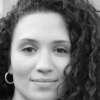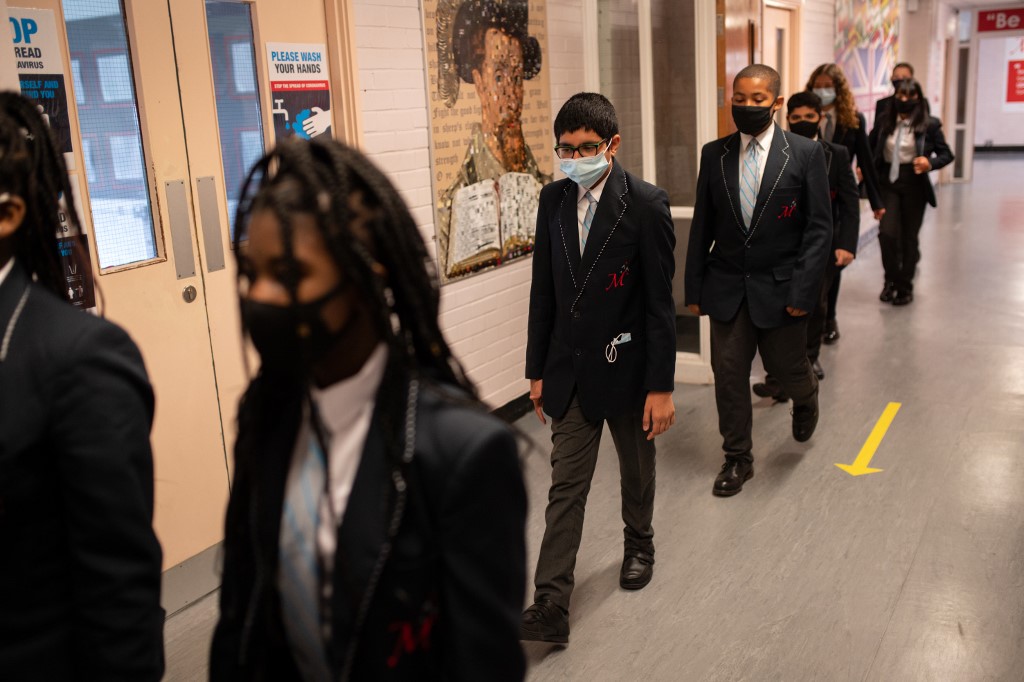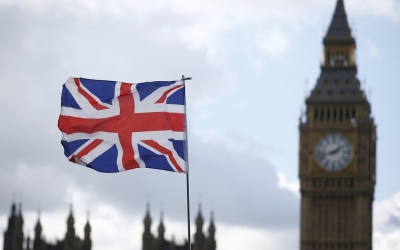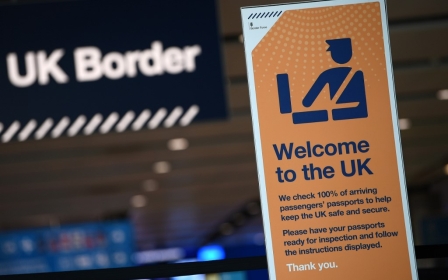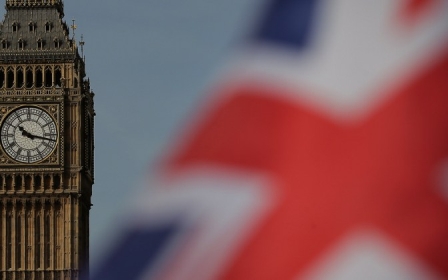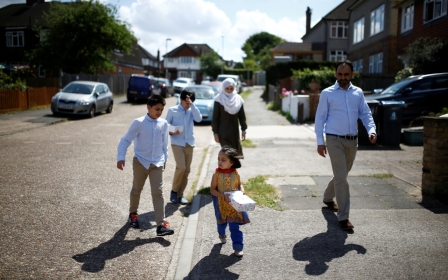First they came for the Muslims, then the anti-capitalists
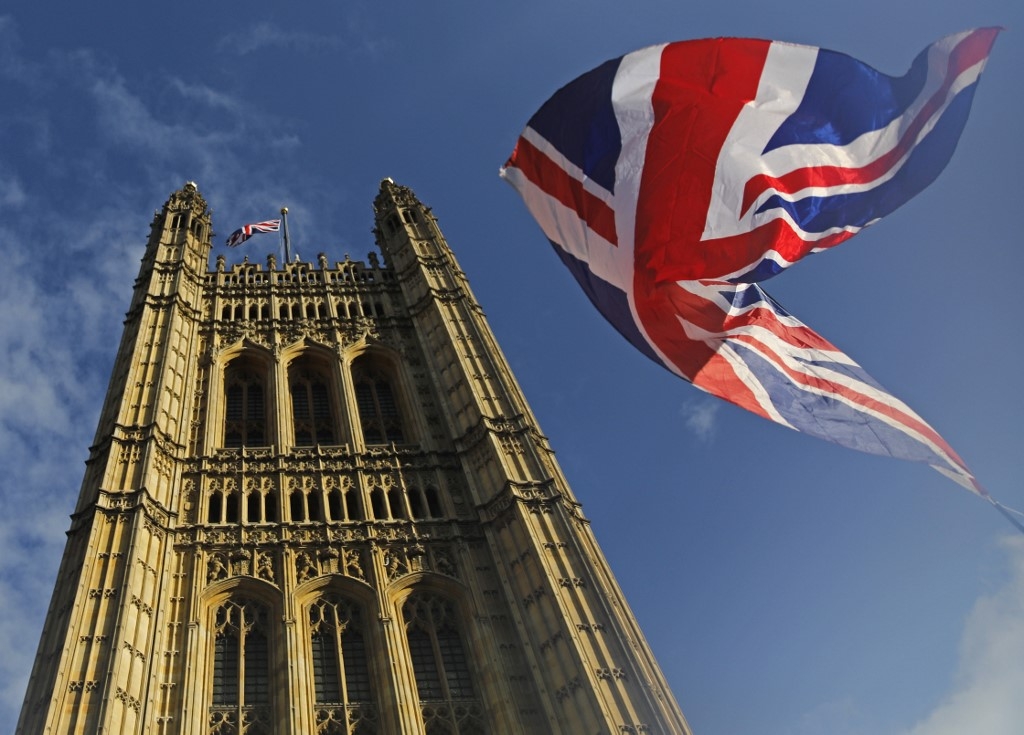
The British government’s recent move towards outlawing anti-capitalist ideas in schools, under the rubric of anti-extremism, is the latest in a long list of attacks on civil liberties and political rights.
Guidelines issued by the Department for Education to schools across England describe the desire to overthrow capitalism as an “extreme political stance”. Teachers can therefore not express such views in class or use resources from organisations that hold such ideas. This is the case “even if the material itself is not extreme, as the use of it could imply endorsement or support of the organisation”.
The state is defining the limits of acceptable political discourse from above, in hopes of limiting the political responses to the social ills that plague our society
While the logic of this policy might seem baffling, it reflects the approach underlying the entire political counter-extremism project. One needs only to see the growing list of experts who have criticised the government’s counter-extremism policy, as well as the increasing number of professionals, public sector workers and communities who have been targeted by it, to understand the scale of the problem.
Our government has absolutely no interest in tackling social issues. This is not a case of poorly thought-out policy, or of overreach. This is the latest instalment in a two-decade process of assaults on political freedoms and civil rights in the UK, under the cover of a so-called war on terror.
Counter-extremism has nothing to do with tackling extremism, whatever its name might suggest. If it did, it wouldn’t try to bury “dangerous” ideas, but rather adequately resource and support professionals across education and civil society to address them in open and safe discussions, allowing students to work through them collectively. This would address some of the reasons why hateful ideas exist, which in some cases are linked to a deep sense of isolation and hopelessness.
New MEE newsletter: Jerusalem Dispatch
Sign up to get the latest insights and analysis on Israel-Palestine, alongside Turkey Unpacked and other MEE newsletters
The state is not tackling harmful ideas such as racism, sexism or homophobia, nor even addressing the desire for violence that some students might experience in response to social conditions. Instead, it is defining the limits of acceptable political discourse from above, in hopes of limiting the political responses to the social ills that plague our society - poverty, police brutality, unemployment, dwindling welfare services and structural racism. The government hopes to undermine any space where political responses to these issues could be discussed.
For sale to the highest bidder
The arguments against anti-capitalist ideologies reinforce this understanding. Millions of people suffer from the consequences of capitalist policies that favour the rich over the poor, allow big businesses to thrive at the cost of people’s lives, and offer the basic necessities for society’s well-being - health, education, social care - for sale to the highest bidder.
The Tories have modelled their politics on an economic philosophy that prioritises private profits to the detriment of the lives of the vast majority. The outcome of this approach has led to countless avoidable deaths during the Covid-19 pandemic, as the NHS suffers from underfunding and understaffing, and the government continues to focus on keeping businesses running rather than protecting the population.
Engaging with the issues that impact the vast majority, especially as we enter the largest recession since the Great Depression, only highlights that capitalism is the crisis - and that we urgently need an alternative. Capitalism is the extreme, and we are its victims.
Yet, daring to support or even discuss an alternative to this hopeless, unjust and unequal economic system in the educational sphere is now being outlawed by the state. The aim is not to address the thousands of job losses, extreme poverty, underfunded health services, or lack of protection against coronavirus. The state is only interested in protecting its power. This is counter-extremism today.
Of all the things to focus on, it beggars belief that this is what the education department is concerned with. Schools were forced to open their doors, with few protections for staff and students, despite the National Education Union (NEU)’s warnings. Over the summer, NEU officials proposed to the government an Education Recovery Plan to ensure a safe working and learning environment; they did not receive a reply.
Agents of the state
Now, amid an alarming rise in cases in the UK, classrooms in which there can be 32 students at a time are a huge worry. Around one in six secondary schools are being forced to send pupils home over fears that they may be infected with Covid-19.
As Geoff Barton, general secretary of the Association of School and College Leaders, said: “It is increasingly clear that schools have effectively found themselves on the frontline of managing the public health emergency, as well as delivering education, and the support simply has to be there.” Now, they’re also being forced to serve as agents of the state, deployed to censor the very political ideologies that would point to a collective way out.
If the lockdown and period of school closures during the Easter term showed us anything, it was the power of teachers and education staff. They forced multiple U-turns, including stopping the reopening of schools to all primary school pupils before the summer break, the compulsory use of face masks within institutions, and the reversal of the catastrophic use of algorithms to decide A-Level grades.
Since the pandemic, the NEU has grown by 50,000 members, and now has a membership of around half a million. Teachers are worried about their health, that of pupils and their families, and the dismal future that our government is proposing. They are clearly angry and unwilling to accept business as usual.
Collective resistance
In this context, it is clear that this latest policy is a diversion, as well as an attempt to red-bait teachers - scaring parents and the public into believing that teachers are not concerned for their students’ welfare, but are instead led by their desires for the overthrow of the state. Communists under the bed, anti-capitalists in the classrooms, and the legacy of the House Un-American Activities Committee is alive and well.
Imagine the possibilities if we organised our rage collectively and demanded that instead of sowing fear and confusion, the government actually dealt with the multiple crises plaguing our society
Many of us - including many NEU activists - argued that a failure to challenge the state’s counter-extremism agenda when it targeted primarily Muslims would lead to a greater assault on civil liberties across the board. It is a bitter experience to be proven right.
As the government continues to disregard those on the frontlines, the opportunity for collective resistance also grows. Hundreds of thousands of teaching staff, students, doctors, activists opposed to the state’s counter-extremism agenda, civil liberties and social justice organisations, anti-fracking groups, anti-Zionists, anti-imperialists and now anti-capitalists - the list of those targeted by the state’s attempted censorship is considerable and grows by the day.
Imagine the possibilities if we organised our rage collectively and demanded that instead of sowing fear and confusion, the government actually dealt with the multiple crises plaguing our society.
The views expressed in this article belong to the author and do not necessarily reflect the editorial policy of Middle East Eye
Middle East Eye delivers independent and unrivalled coverage and analysis of the Middle East, North Africa and beyond. To learn more about republishing this content and the associated fees, please fill out this form. More about MEE can be found here.


